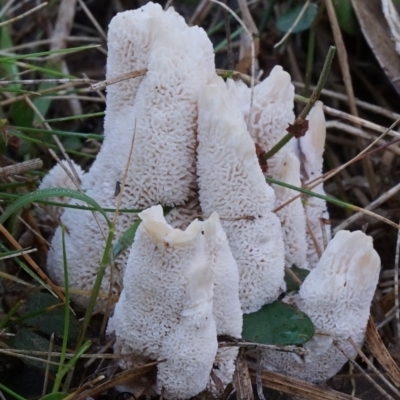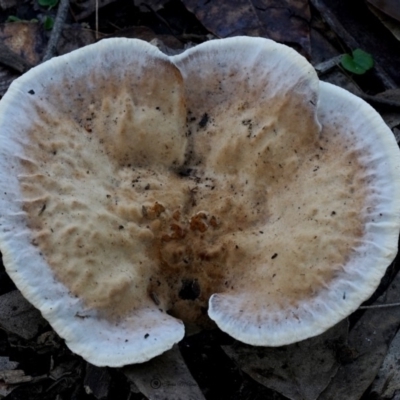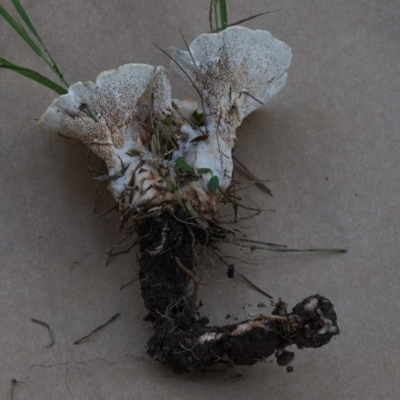Pored or somewhat maze-like on underside [bracket polypores] species
Moderators
The following moderators provide local knowledge and expertise for Pored or somewhat maze-like on underside [bracket polypores]:
Heino1 | Csteele4 | Pam | Teresa | WingsToWander | KenT | CanberraFungiGroup | JTran | MEJETEuge
Overview
In most species of this sub-group, the underside of the fruitbody has pores. In most cases the pores are small (two or more per millimetre) and of uniform size and appearance. However, in some species the pores are larger or of irregular shapes and sizes or incomplete and so giving a maze-like appearance. Sometimes you may see a mix of pored and maze-like regions in the one fruitbody.
In the following hints you see examples of useful identification features and a few of the more commonly seen genera in which at least some species (not necessarily all) show those features.
Hints
Red, fleshy texture: Fistulina.
Orange, leathery to corky texture: Piptoporus, Pycnoporus, Rigidoporus.
Pinkish to pinkish-brown, texture of firm rubber: Rhodofomitopsis.
Corky texture; creamy to yellow- brown: Perenniporia.
Upper surface furry & orange-brown to red-brown, pores white: Postia.
Large, creamy to pale brown, on live trees: Laetiporus.
On the wood of native or introduced conifers: Gloeophyllum.
Pores large, several millimetres in diameter: Hexagonia.
Underside maze-like or a mixture of pores & irregular gills: Cerrena, Gloeophyllum.
Hard & woody, black upper surface, pores brown to bronze: Phellinus.
Hard & woody, brown upper surface, pores white & marking brown: Ganoderma.
Hard & woody, brown upper surface, pores white & not marking brown: Fomes.
Roughly semi-circular, leathery, concentrically banded upper surface; white pores: Trametes.
Note: Trametes is a very common genus and is the one (with these features)
that you are most likely to see.
5 species
-
Cosmopolitan (change?)
* designates formal legal status
- All invasiveness levels (change?)
Artificial intelligence
CarbonAI is not active.
Follow Pored or somewhat maze-like on underside [bracket polypores]
Receive alerts of new sightings
SubscribeShare field guide
Share link to Pored or somewhat maze-like on underside [bracket polypores] field guide










